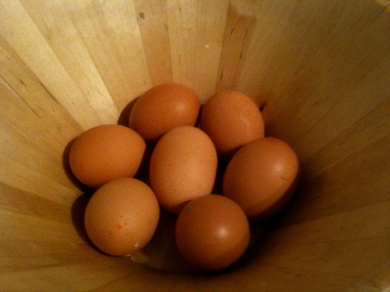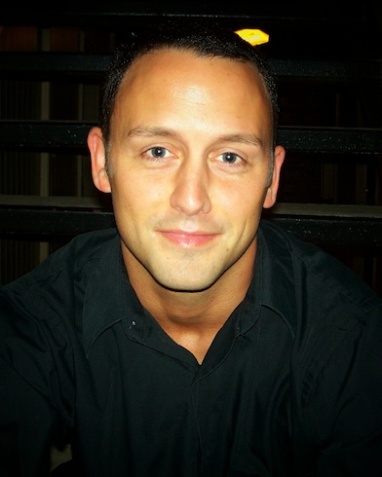Everyone wants to be a writer. If you go onto Facebook or Twitter and ask “how’s your book going,” there’s a good chance you’ll get numerous replies, many from people you weren’t even aware wanted to write a book. And, why not? When we’re hanging out with friends, we all love to tell stories, and we all want to be the guy or gal at the party who captivates the other party-goers with tales of fun and adventure. The idea of putting that natural desire to paper in the form of a book, which anyone can read, is an enticing one. Where issues enter, however, is when we realize that everyone else around us feels the exact same way. Everyone wants to be a writer.
Ebooks and the Internet have made all of this even worse. Where once, if you wanted to publish your book, you either had to go through the traditional publishing process of submission, rejection, and eventual publication, or you had to invest massive amounts of money out of your pocket to self-publish. Now-a-days, you simply format your book to certain guidelines, upload it to an Internet store, and wait for the sales to roll in. Anyone can do it, and many, many, many people do, for better or worse. What then can an amateur writer do separate him or herself from the pack? What can an amateur writer do to get noticed in a sea full of amateur writers?
In my work with Grammarly, I spend a lot of time researching online tools to make writers better, and I believe that while setting yourself apart from the pack is difficult, it’s not impossible. In fact, the easiest way to do so is to start by understanding some of the most common mistakes amateur writers make and how to avoid those mistakes. Here are a few tips I’ve learned to help amateur writers set themselves apart, and even above, the crowd.
- Actually Finish Your Book: Remember when I said you could ask about books on Facebook or Twitter and getting a ton of replies? Often, many of those replies will be something along the lines of, “I’m working on it. Just gotta find the time” or “I’m still in the outlining phase.” That’s because while most people talk about writing a book, very few people actually do. Writing a book is hard, and it takes discipline. The easiest way to set yourself apart from the rest of the writers on the Internet is to actually finish your book. Don’t worry about quality yet. You can edit errors in a book, but you have to have a book to edit first. Don’t think, just write.
- Write Every Day: Writing is a skill, like sports or visual art. The only way to get better is to practice, practice, practice. Whether it’s fiction, non-fiction, a blog post, a business memo, or whatever, try to find time in your day to lay some words on a page. In fact, if you want to avoid two major mistakes, use this tip to help with the previous one as well.
- Remember That Editing and Proofreading Are Different: So, you’ve taken the first two tips in hand, and you’ve finally finished your book. Great! Celebrate! Then, prepare for the long and arduous process of editing that book. No one writes perfect first drafts, and editing your manuscript is almost as important a process as writing it. Some might say it’s even more important. With that said, it’s important to remember that editing and proofreading are two different things. If you’ll allow a cleaning analogy, proofreading is like dusting. You aren’t making any major changes to the room, but you’re tidying up. Editing is like taking all of the furniture out onto the lawn, deciding whether or not you want to keep it, and then moving it all back in. Is this scene necessary? What about this character? This bit of dialogue – is that really how the character would talk? Would anyone talk like that? Be willing to slice and dice your book to shreds, if necessary, and in the end, you’ll have a superior product.
- Don’t Forget to Proofread, However: Keep in mind, however, that even after you’ve finished moving the furniture out of the room and decided what’s coming back, you still need to tidy up. You still need to dust off the coffee table, so to speak. One of the easiest ways to lose professionalism in the eyes of your audience is to put out a product filled with typos and silly grammar mistakes. You can use a standard spelling and grammar check on your word processing program, but if you really want to catch all of those errors, consider a more detailed grammar check. For example, at Grammarly.com, we offer a check that scans your text for over 200 standard grammar errors, alerting you to issues you might not have caught on standard readings. Regardless of how you choose to proofread, don’t forget this important step. A typo-riddled manuscript will quickly turn your reader off, and as previously established, he or she will have plenty of other things to read.
Setting yourself apart from the pack is not easy, but it’s not impossible. It takes work, but if you’re willing to do it, you have a better chance of finding an audience for your book. Remember to write every day, and when it comes time to edit, don’t be scared to tear your manuscript apart if it serves the story. Firmly establishing these practices early will save you many headaches in the future.
About Nikolas Baron
Nikolas discovered his love for the written word in Elementary School, where he started spending his afternoons sprawled across the living room floor devouring one Marc Brown childrens’ novel after the other and writing short stories about daring pirate adventures. After acquiring some experience in various marketing, business development, and hiring roles at internet startups in a few different countries, he decided to re-unite his professional life with his childhood passions by joining Grammarly’s marketing team in San Francisco. He has the pleasure of being tasked with talking to writers, bloggers, teachers, and others about how they use Grammarly’s online proofreading application to improve their writing. His free time is spent biking, travelling, and reading.






